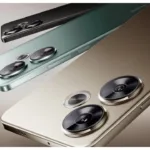Ever stepped out of a refreshing shower feeling parched and tempted to chug down a glass of water? While listening to your body’s thirst cues is always a good idea, there are some interesting factors to consider when rehydrating after a bath or shower.
This article dives deep into the benefits and potential concerns of drinking water after bathing, guiding you towards a well-informed choice and optimal hydration practices.
Understanding How Bathing Affects Hydration:
1. Temperature Matters: Hot showers, especially those exceeding 40°C (104°F), can cause mild dehydration. The warm water draws blood flow closer to the skin’s surface, increasing sweating to cool the body down. While this process helps regulate internal temperature, it can also lead to the loss of water and electrolytes.
2. Duration Plays a Role: The longer you spend in the shower, the higher the potential for fluid loss. Soaking in a hot tub for an extended period can significantly impact hydration levels compared to a quick, lukewarm shower.
3. Individual Factors: Age, health conditions, and activity levels can influence how your body reacts to bathing and its impact on hydration. Individuals with pre-existing medical conditions or those engaging in strenuous activities might require more focused attention to rehydration.
Benefits of Drinking Water After Bathing:
1. Replenishes Lost Fluids: Whether due to sweating or simply enjoying a warm shower, drinking water after bathing helps replenish the lost fluids and restore optimal hydration levels. This is crucial for maintaining bodily functions, regulating temperature, and supporting cognitive function.
2. Improves Circulation: Drinking water after bathing, especially lukewarm water, can help improve blood circulation. This can be beneficial for individuals with circulatory issues or those experiencing symptoms like fatigue or dizziness after showering.
3. Enhances Skin Health: Dehydration can contribute to dry, flaky skin. Drinking water after bathing helps rehydrate the body from within, potentially improving skin health and giving your complexion a healthy glow.
4. Aids Digestion: While the jury’s still out on the direct link between showering and digestion, staying adequately hydrated is crucial for optimal digestive function. Drinking water after showering can contribute to overall hydration and potentially support digestive processes.
Potential Concerns (and Addressing Them):
1. Dilution of Electrolytes: While water is essential for hydration, it’s important to remember that it doesn’t replenish electrolytes lost through sweating. For extended hot showers or baths, consider consuming an electrolyte-rich beverage alongside water to ensure proper electrolyte balance.
2. Overhydration: While uncommon, overhydration can occur, especially if you drink large quantities of water without considering your individual needs and fluid loss during the shower. Listen to your body’s cues and avoid excessive water intake.
3. Bathing and Cold Water: Cold showers, generally considered refreshing, don’t typically lead to significant fluid loss. However, if you experience chills or feel thirsty after a cold shower, drinking a moderate amount of water is perfectly fine.
Table: Summary of Bathing, Hydration, and Recommendations:
| Bathing Duration | Temperature | Recommendation |
|---|---|---|
| Short (5-10 minutes) | Lukewarm or Cool | Drink water if thirsty, consider electrolytes for extended exposure. |
| Long (15+ minutes) | Warm | Drink water and consider an electrolyte-rich beverage for fluid and electrolyte replacement. |
| Hot (40°C and above) | Hot | Drink water and replenish electrolytes, especially after extended exposure. |
Additional Tips for Optimal Hydration:
- Listen to your body: Thirst is the body’s natural signal for hydration. Drink water throughout the day, especially when thirsty, regardless of bathing habits.
- Monitor your urine color: Pale yellow urine indicates adequate hydration, while dark yellow urine suggests potential dehydration.
- Choose healthy beverages: Opt for water, unsweetened tea, or fruit-infused water over sugary drinks.
- Carry a water bottle: Having a water bottle handy acts as a convenient reminder to stay hydrated throughout the day.
- Consult a healthcare professional: If you have concerns about hydration or experience unusual symptoms after bathing, consult your doctor for personalized advice.




